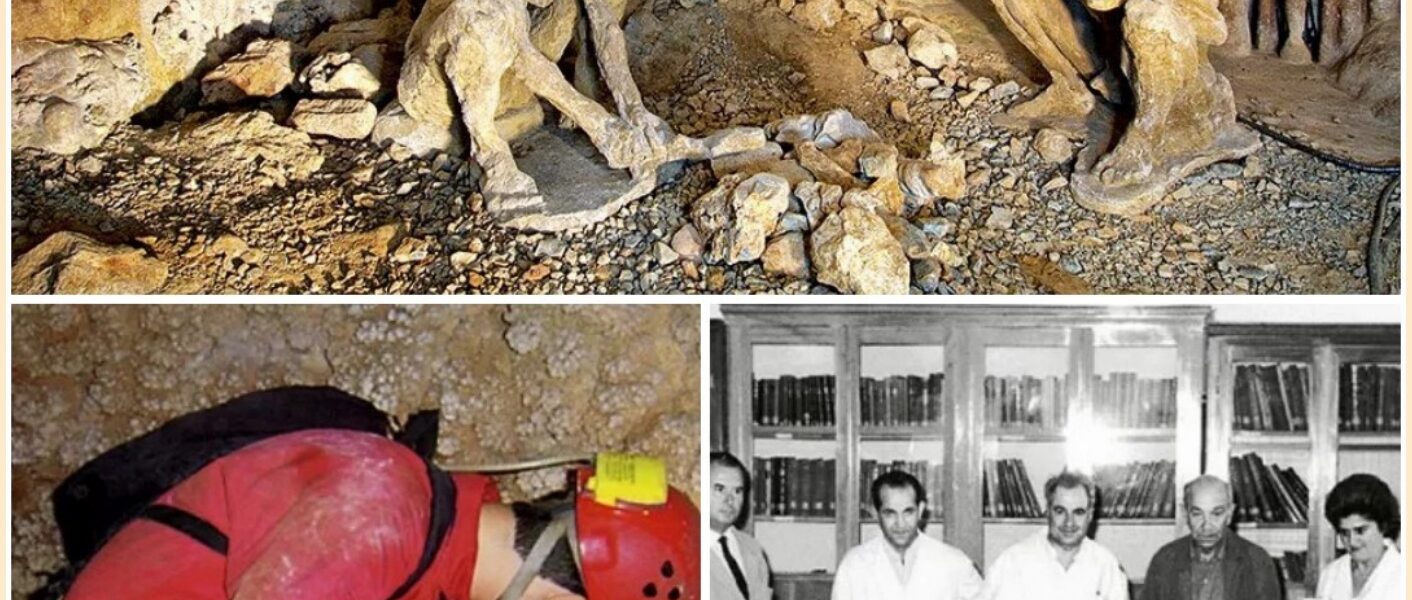INCREDIBLE DISCOVERY: 700,000-Year-Old Human Skull Found in Greece Threatens to Turn “Out of Africa” Theory on Its Head – Will This Fact Change Everything We Know About Human Origins?
700,000-Year-Old Human Skull Found in Greece Completely Debunks ‘Out of Africa’ Theory

In a stunning scientific discovery, researchers have reported finding a human skull dating back around 700,000 years in Greece, marking an unprecedented development in our understanding of human history. Not only was this discovery surprising, it had a profound impact on one of the most prominent scientific theories that had long prevailed: the “Out of Africa” theory. This theory, which suggests that modern humans (Homo sapiens) originated in Africa and then migrated to the rest of the world around 60,000 to 100,000 years ago, has been dealt a major blow following this discovery.

Details of the discovery and the importance of the skull

The skull was found at an archaeological site in southern Greece, specifically in a mountainous area off the beaten track, where archaeological work was being carried out by an international team of scientists specializing in the study of human evolution. The skull found looks clearly human, but what surprised scientists is that it is estimated to be around 700,000 years old, which is far beyond the previously accepted date for modern human migration.

Scientists initially thought the oldest human remains in Europe dated back about 400,000 years, but the discovery led them to reevaluate many assumptions about the spread of early humans out of Africa. The skull was analyzed using advanced imaging and biological techniques, and evidence showed that it contained features similar to those of modern humans, but at the same time, it carried characteristics that may have been familiar to the ancestors of Neanderthals.
Breaking the “Out of Africa” Theory
The “Out of Africa” theory described the process of human evolution as follows: early humans evolved in Africa and then began migrating from there to different parts of the world. This theory was based on archaeological and genetic evidence that suggested that modern humans (Homo sapiens) originated in Africa and then spread to the rest of the world’s continents.
But the new discovery in Greece raises many questions about that theory. The discovery of a 700,000-year-old human skull in Europe means that humans may have arrived on the continent much earlier than previously thought. This could indicate that early humans not only migrated out of Africa later, but that there may have been an earlier human presence in parts of Europe and the Middle East, contradicting the idea of a later migration out of Africa.
Scientists’ opinions on the discovery
Reactions to the discovery have been mixed, with many scientists expressing surprise, while others have been more cautious in their conclusions. Some experts have suggested that the skull may belong to a group of early humans who evolved in other parts of the world, far from Africa. Others believe that the discovery could mean that human migration was more complex and diverse than the “Out of Africa” theory had imagined.
On the other hand, some scientists have pointed out that this discovery may strengthen the idea of multiregional origins, which says that humans evolved in parallel in several places around the world, not just in Africa. This suggests that modern humans may have diverse roots, extending to different regions of the world, which contrasts sharply with the idea that Africa is the sole cradle of humanity.
Future implications
If confirmed, this discovery could completely change our understanding of human history, reshaping many of our theories about where humans came from and how they spread across planet Earth. This discovery could lead scientists to rethink the methods used to retrieve genetic data and archaeological studies, including examining other ancient sites that may contain missing evidence of human presence outside of Africa.
Conclusion
This discovery represents a turning point in anthropology and paleobiology. A human skull found in Greece opens the door to many new possibilities about human evolution and early migrations. As scientists continue to study this unique discovery, we may be on the verge of a new chapter in the scientific understanding of human history that could change the course of history.




